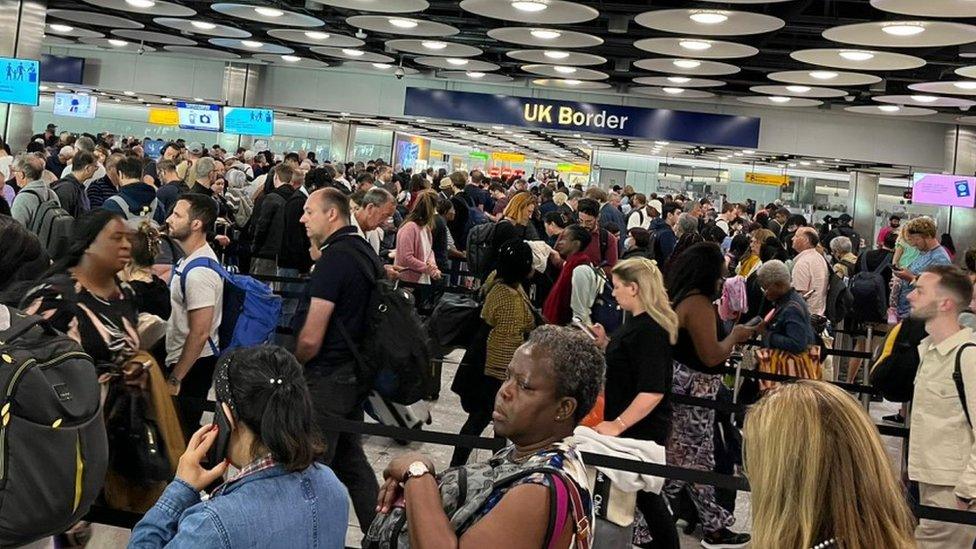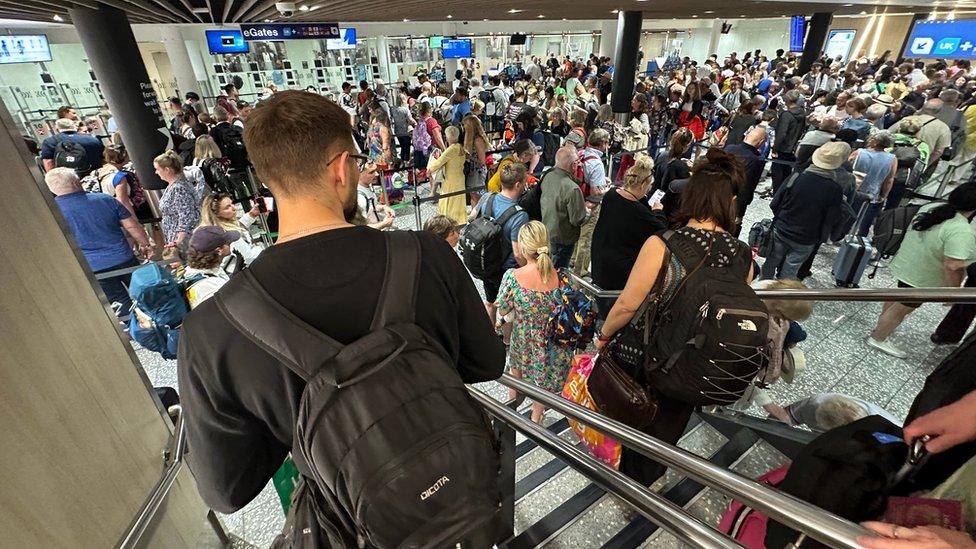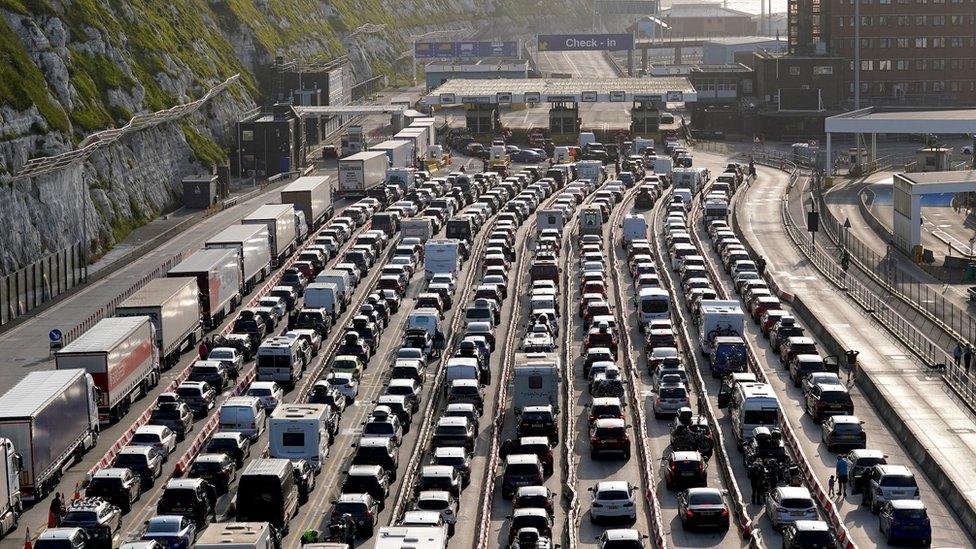Anger over airports' passport e-gates not working
- Published

Passengers flying into the UK faced hours of delays at airports across the country where passport e-gates were not working.
Travellers told of their anger at being stuck in queues at airports including Heathrow, Manchester and Gatwick.
The Home Office said on Saturday evening that all e-gates were now operating as normal.
The disruption, which began on Friday night, had been due to an IT issue, a source told the BBC.
All airports across the country using the technology were affected.
The e-gate system speeds up passport control by allowing some passengers to scan their own passports. It uses facial recognition to verify identity and captures the traveller's image.
People flying into the UK had to have their passports checked manually, with larger airports with e-gates most affected.
Marc Baret had been booked on a flight from Chicago to Manchester via Heathrow, but told BBC News he had changed his plans after he was left waiting for more than two hours at the London airport.
He said: "It was absolute chaos at passport control. There were people getting really frustrated and a couple of individuals tried to jump queues, the police had to get engaged and one of the passengers fainted."
Watch: Huge queues at Gatwick as e-gates fail
Another passenger, arriving at Gatwick, said the situation was an "utter joke".
Stephen, who declined to share his second name, waited for two-and-a-half hours at Bristol airport on Saturday afternoon without any access to water.
He said: "It was very hot, there was only one water bottle fill opportunity in the Arrivals hallways, and nothing in the immigration hall itself.
"I didn't have a water bottle to top up so was very thirsty afterwards."
Eurostar passengers were also affected, with travellers waiting in lengthy queues at Paris Gare de Nord train station because the e-gates were not working.

Stephen S waited at passport control at Bristol Airport for two-and-a-half hours on Saturday afternoon
One man said he had to wait in the queue at Luton Airport for more than two hours earlier. Craig Pullen also told the BBC it was "very poor" that travellers had not been given regular updates on the problem, or told how long it would take to clear passport control.
Bobby Lane waited three hours at passport control at Luton Airport in the early hours of Saturday morning.
He praised a Bedfordshire police officer who handed out bottles of water to struggling passengers, tweeting that he had "kept thousands in line with humour and kindness".
A spokesperson for the airport said the mood among passengers had been "one of patience and understanding".
Dave Tatlow was one of 300 passengers stuck in a queue at Heathrow Airport early in the morning.
He said some passengers had overheated in the hot glass building.
"One poor elderly gentleman in his seventies travelling alone collapsed, and had to be helped by other passengers and staff.
"After that, bottles of water were distributed."
This weekend was expected to be busy for travellers, with the bank holiday coinciding with the half-term break for many families.
Separately, travellers leaving the UK from the Port of Dover also faced issues after the French passport system failed earlier on Saturday.
That issue has now been fixed, but cars and coaches were waiting for about an hour, with about 400 lorries queuing to make the crossing.

Passengers queue for ferries at the Port of Dover in Kent on Saturday
Lucy Morton, from the Immigration Services Union, told the BBC that between 60-80% of incoming passengers usually use e-gates, depending on the airport.
"There's no impact on national security," she added, explaining that all arrivals would have been fully checked at manned officer desks.
E-gates can be used by British citizens aged over 12 and those from the EU, as well as people from countries including Australia, Canada, the US, Japan and New Zealand.
But all entry points retain manned security desks for other passengers and those unable to use e-gates.
On Thursday and Friday, British Airways was also hit by IT issues, affecting more than 20,000 passengers at Heathrow.

Have your travel plans been affected by the delays? Share your experiences by emailing haveyoursay@bbc.co.uk, external.
Please include a contact number if you are willing to speak to a BBC journalist. You can also get in touch in the following ways:
WhatsApp: +44 7756 165803
Tweet: @BBC_HaveYourSay, external
Please read our terms & conditions and privacy policy
If you are reading this page and can't see the form you will need to visit the mobile version of the BBC website to submit your question or comment or you can email us at HaveYourSay@bbc.co.uk, external. Please include your name, age and location with any submission.